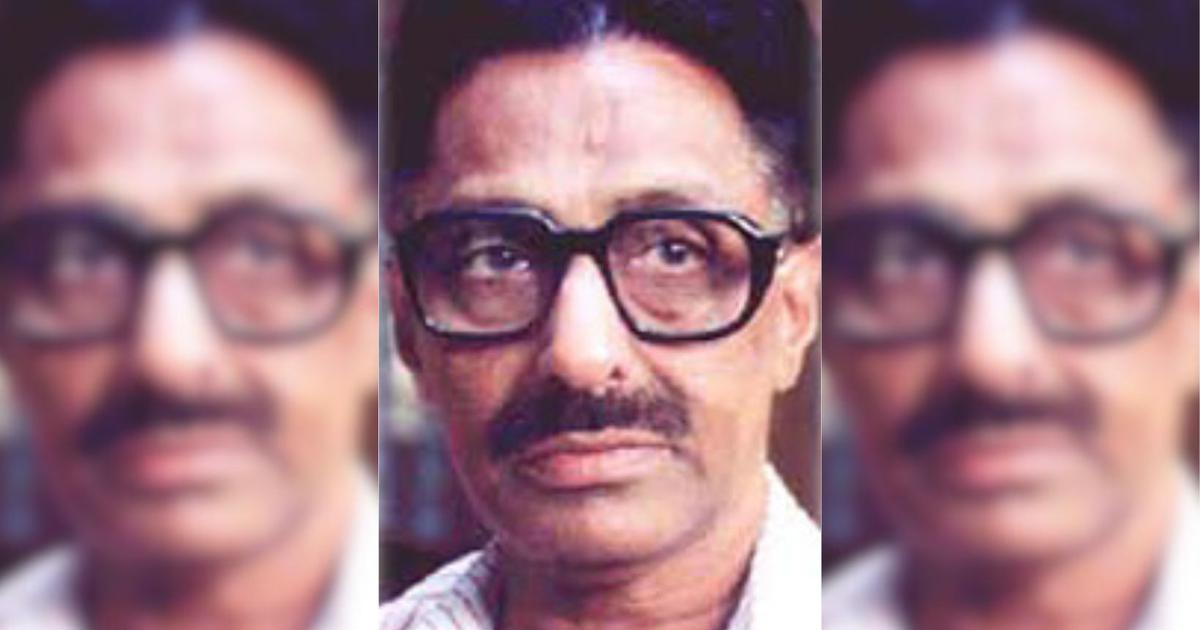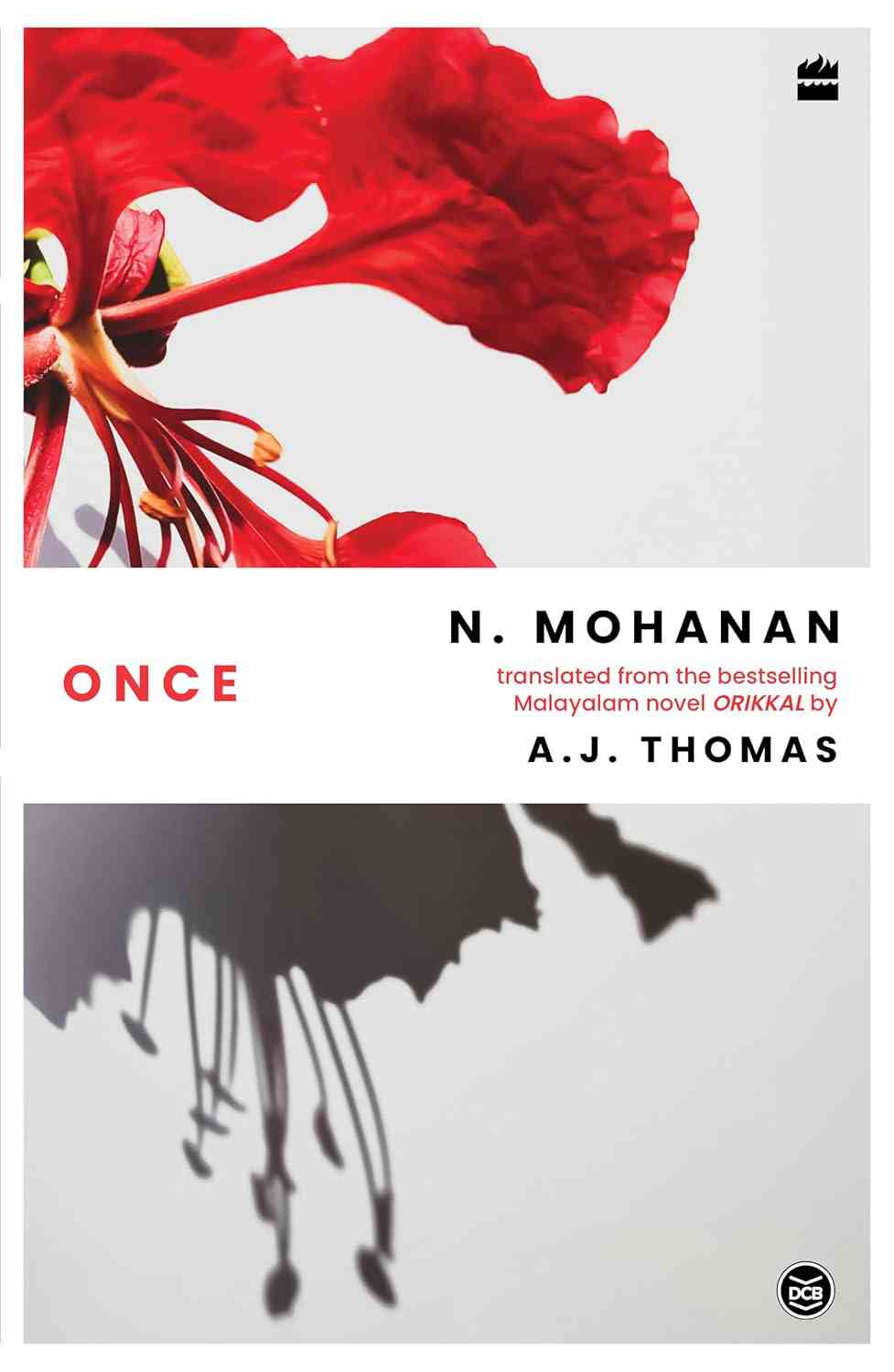OTHERS ARE
Reading 
- 1‘All the Way to the River’: Elizabeth Gilbert’s memoir is wealthy, whiny and wildly tone deaf
- 2India’s richest men get protection against uncomfortable questions
- 3Drop in international student arrivals could prove costly for American economy
- 4‘Bengal’s reply’: Across Kolkata, Durga Puja pandals respond to targeting of Bengali speakers
- 5‘This Could Be a Love Poem for You’: Poems that acknowledge the transient and grapple with mortality
- 6Book versus film: How Akira Kurosawa’s ‘High and Low’ relocates – and reimagines – ‘King’s Ransom’
- 7AI giants strike deals to collect real-world data
- 8‘Once’: A novel that cherishes love, both given and received, holding it central to our existence
- 930 African refugees arrested by Delhi Police in past week, sent to detention centre
- 10Fiction: Usha struggles to honour her husband’s last wish, shuttling between India and America
‘Once’: A novel that cherishes love, both given and received, holding it central to our existence
N Mohanan’s Malayalam novel, translated by AJ Thomas, was originally serialised in a newspaper under the title ‘Raagangalkku Oru Kaalam’.
Yesterday · 08:30 am
Read in App

Once by N Mohanan, translated from the bestselling Malayalam novel Orikkal by AJ Thomas, begins with a short letter to readers from the author. In it, he explains how a request from two editors of the newspaper Malayalam Manorama to write a piece about the woman who had the greatest influence on his life prompted him to write the book. He meekly awards the title neither to his mother, the famous Malayalam writer Lalithambika Antharjanam, nor to his wife, but to a “girl” who shaped his intellectual and emotional life and fuelled his creative drive in an interim phase when he stepped out of his mother’s care and was yet to get married.
Part memoir and part fiction, Once is about the dreams and aspirations this “girl” planted in the author’s fecund mind that blossomed into a beautiful and intense emotional relationship; about the love she gave him and received in turn before she suddenly walked away from the world they built together. The novella is about the wounds of an unfulfilled love that you believe have healed over time, only to see them bleed when you accidentally meet your long-lost love decades later in your twilight years.
Before you scroll further…
Get the best of Scroll directly in your inbox for free.
Subscribe
The novella was originally serialised in the Sunday supplement of Malayalam Manorama under the title Raagangalkku Oru Kaalam, and then expanded into a novel and published in Malayalam in 1999. A singularly striking aspect of this publication is that the author’s wife never objected to her husband’s novel extolling “another” woman being published, but savoured it like any other reader. In fact, in the endnotes, the author’s daughter reveals that her mother, younger brother and she were abundantly privy to their father’s heartbreak, and that this “other” woman regularly featured in their playful banter at home.
Farther from the farthest, nearer than the nearest
The author’s wife is admitted to a private hospital in her hometown to treat a nagging arthritis problem. This sets up a chance meeting between the author and his long-lost love, who is receiving treatment at the same hospital for her terminal illness. Decades after they parted ways, their meeting in the hospital results in an emotional upheaval that eludes simple summation. G Sankara Kurup’s poetry alone could offer solace – “You are farther from the farthest, but the wonder is you are nearer than the nearest!”, the same lines she read out in an enchanting voice in their first meeting. Was he turning back into the first-year MA Malayalam student at the University College, head over heels in love with his college junior, whom he fondly referred to as Chakkee?
As he traverses the ancient by-lanes of his early youth and memories trickle back, Trivandrum of the 1950s with its roads, dusty lanes and junctions studded with tea shops, little temples and the park near Waterworks, comes alive. A period when men reserved their tenderness for the sweet ideals of communism, when literature and art were considered unavoidable necessities, unfolds gently in the backdrop. Borne out of mutual respect and admiration, as their love blooms like a lush canopy of deep red Gulmohar flowers, they earnestly aspire to a future together, even as sombre anxiety of being from different castes crushes their happiness at times. Soon, destiny throws a curveball and upturns the world of dreams.
From tragedy comes triumph
From a deep gash of heartbreak arises a wellspring of words. The bitter leftovers of the loss of love are transformed into little victories. The author’s nearly stoic indifference to tragedy feels almost unbelievable. After the meeting at the hospital, he writes, “Let me tell you the truth. There is no romantic love here. No worshipful adoration. No pangs of parting. No emotional attraction embellished by any degree of sophistication. Yet, I cannot deny the fact that there is something else, which is beyond what I can explain.” Words are inadequate when it comes to conveying emotional depth, and nuances of human relationships cannot be categorised under distinct headings. The inabilities of language become obvious.
Advertisement
Though the prose brims with poetic elegance and sincerity, lines like this one sit oddly – “Is it that you will lie forever in the lounge of my memory, as the cankerous corrosiveness of a never-abating guilty conscience?” That said, AJ Thomas’s effort to express the gifts and scars of the author’s unfulfilled love through translation is a remarkable one. If a few cinematic twists sustain our interest in the story, the author’s daughter’s firm conviction that the novella is a blend of imagination and reality, as opposed to the author’s declaration that the work is autobiographical, adds confusion and intrigue.
Lyrical and meditative, N Mohanan’s Once cherishes love, both given and received, holding it central and sacrosanct to our very existence and identity.

Once, N Mohanan, translated from the Malayalam by AJ Thomas, HarperCollins India.We welcome your comments at letters@scroll.in.
Get the app
Just 1% of our paying readers can fund our coverage. Pay to be a Scroll Member and be a part of the solution.
Pick An Amount
- ₹2,500
- ₹5,000
- ₹10,000
- ₹25,000
- Other
No ads
Evening Edition newsletter
Members-only events
Weekly Edition newsletter
Merchandise
Help design new products
Editorial meet-up invitation
Related
‘Courtesans Don’t Read Newspapers’: Anil Yadav’s stories of the Hindi heartland cause shock and rage
Trending
- ‘All the Way to the River’: Elizabeth Gilbert’s memoir is wealthy, whiny and wildly tone deaf
- India’s richest men get protection against uncomfortable questions
- Drop in international student arrivals could prove costly for American economy
- ‘Bengal’s reply’: Across Kolkata, Durga Puja pandals respond to targeting of Bengali speakers
- ‘This Could Be a Love Poem for You’: Poems that acknowledge the transient and grapple with mortality

